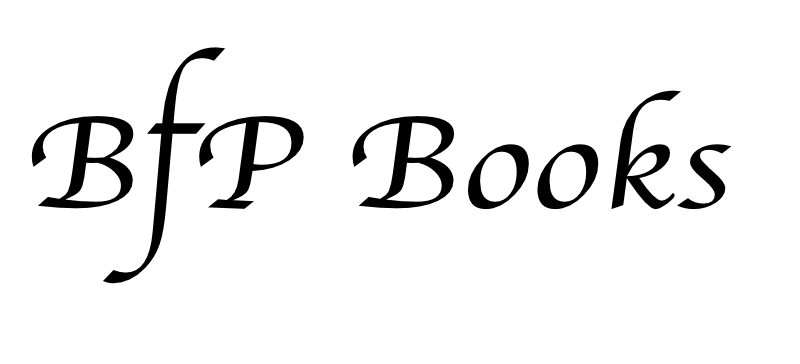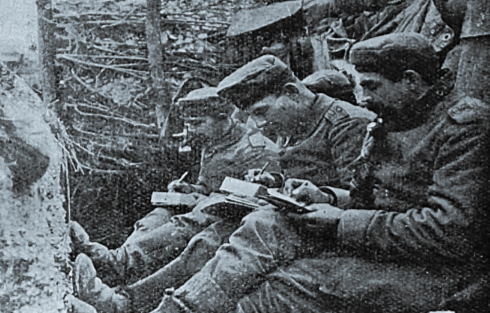The Great War Letters of German and Austrian Jews
I have just emerged from a unique translation project, which was bitter sweet. If you are involved with language you might understand my enthusiasm. I have, I hope, managed to get the German Yiddish in “The War Letters of Austrian and German Jews” translated into English Yiddish correctly. I would be grateful to hear if anyone spots any anomalies, as there were differing opinions. It was a fascinating experience to compare Yiddish with German, to see how tightly German and Jewish are bound by a centuries-old common history, a unique symbiosis between Hebrew and German and one that points up the progress of languages. This would be akin to Spanish in America today taking over anglicisms and forming another language. Perhaps this is happening already. Spanglish? History does repeat itself, after all.
The “War Letters” translation afforded me a wonderful glimpse into the Jewish mind that most of us non-Jews never experience. It has been a unique glimpse behind the veil of another culture, another way of viewing the world:
“Also, the fact that the French chazzan was insulted because he had been excluded from the celebrations, pleased me, as proof of the unity of Judaism: which chazzan in Israel would step aside voluntarily?!!”
Wonderful stab to burst the balloon of pomposity.
The vexed question of God being on both sides in war, for example, popped up again but was not long in passing on:
“The fact that on Yom Kippur a powerful attack on a fortress was taking place and that one heard the terrible thundering of the guns all day long, contributed to intensifying the atmosphere of devotion. And it appears that the dear Lord heard our prayers and helped our troops on to victory.”
I gladly devoted myself to translating these letters. They allowed me to see the purity of emotion that the awfulness of war releases in men. Why do we have to have wait for a war for this to happen?! I think that the next quote has the answer embedded in it, too.
“My thoughts continued; may this age move, purifying, into our streets in Frankfurt, may one learn to understand that up until now there have been too many questions about who was rich and who was poor. Get rid of the worship of wealth, remove these idols from our hearts and our Frankfurt will see that there is something higher, and that is known as, “being human”. May this great moment find a great race, may it cause us to educate ourselves so that after the war we can begin life with new concepts, new perceptions.”
Ironic considering that the exact opposite happened, and Frankfurt became the centre of German financial might!
There were three things that stood out as I coaxed the German words in the text to obey me; (and there were some truly heroic efforts required to ease German Yiddish into English) one was how Jewish soldiers were treated, dismissively, which I expected to read about, and another was the strong bond that Judaism gave to the soldiers. The Jewish soldiers missed the atmosphere in their homes intensely. The rituals that take place in the family circle at home is a distinguishing feature of the Jewish religion, there are many more than in the Christian religion. Am I right in thinking that effect on family members and the Jewish race is to keep them bound together because of the continuing awareness of a common history that the rituals refer to?
“All my thoughts flew to you my dear ones, who will also be thinking of me over here this evening, longing for the Sabbath evening that lights up our house and our hearts with the beams of the Sabbath light, the Sabbath peace, and gathers us around you, beloved mamma, safe and happy. I imagine it all to be so beautiful; how thankful I would be to enter the prayer house again, how happily all of us who are fighting for the security of our homeland, would stretch out our hands in greeting, how festive my dear parents’ house would radiate on this evening. But this hope lies in the far, far distance; the wind is still whistling around our little dugout window, it sweeps over the waters that are like lakes that have formed on the meadows and marshes around our position after snow and rain.”
“. . . when I looked at the domestic life of the Jews, I had the irrefutable insight that something better, more noble, more ethnically valuable lives in the Jew, which lends a purifying strength and blessing to his family life. I felt that the reason for this lay in the Jew’s religion. Only their religion differentiates the Jew from the Pole. Where else could it come from, this difference between human beings that is all too clearly evident between the Jew and the Pole with whom he shares all the living conditions of this wretched, miserable, pitiful existence. I was deeply moved at how the Jews practice their religion, recite the prayers handed down to them by their fathers in all the distress and danger, how only the Jews amongst the Poles keep the house clean and honour their women. That was “Jire”, it was an inherent natural decency.”
As far as the treatment of the Jewish soldiers is concerned, the following sentences and many like them illuminate the atmosphere that surrounded the Jewish boys back home.
“In the future, no one will be able to say about us Jews that we went into this difficult battle as cowards. Yesterday, a major told me that the first Iron Cross in the battalion went to a young rabbi from Strasbourg who had been unanimously recommended by his company.”
“So, we Jews finally see that we are being treated fairly and we should not avoid any exertion or any sacrifice, in order to reach this goal in a dignified manner. I am so very proud to be able to fight for our beloved, admirable fatherland, and I always know that every Jew has a special responsibility, to show that he is ready over and over again, to give his life for the German cause and by doing so to prove the Jew’s equality in his love for his fatherland.”
“Having become aware of the great honour of fighting victoriously for my precious fatherland on the front lines, I shall be on the front lines afterwards to participate when the word comes to stand up for equality for our fellow believers at all levels. These motives induce me not to spend the present battle for our existence, behind the lines. I am fighting as is every German, and I fight, so that afterwards I can stand up as a German for the rights of German Jews. Perhaps we can talk about this subject together another time.”
The third point was the firm belief that a new world was being forged by the war and that Jews would be treated as equals within that new society.
Again and again when I translate old texts from the Great War, I come across the soldiers’ desire for more humane behaviour on the earth. The words ring out from across the century and could easily be used in today’s world where selfishness is rampant and admired, but endangers our beautiful, borrowed, world. This from a young Jewish soldier who did not live to see his dreams crushed brutally:
“If you could understand it properly, you wealthy people, you would open your hearts and hands wider, would show yourselves to be great human beings and even greater in your duties as Jews, in order to relieve the misery and distress. You would understand that it is twice as necessary in these times to donate and to give. It may be, that during these years sources of income dried up, indeed it is probable that there were losses, but God gave you so many years of prosperity . . . “Get rid of the worship of wealth, remove these idols from our hearts and our Frankfurt will see that there is something higher which is known as “being human.”
This is such a powerful text and today it’s blinding light should be emblazoned along wall street, Hollywood, shine out on the desks of every political leader and in the boardrooms of every wealthy company. “God gave you so many years of prosperity . .” A young soldier who probably did not live past the end of the year in which the letter was written holding the mirror of humanity up to those who had lost it. This encapsulates what life should truly be about and what has become lost in this age where self assertion is a mantra.
And the pain of war, of course, these letters come from the front lines after all, is ever present:
“Far from home, enemy bullets struck him and put an end, far too soon, to this fine young life. There is nothing of him left to me except the memory of the happy and bleak days of youth that we spent together . . .”
“Suddenly, we got the word; “Forwards”, the enemy is pulling back. I quickly turned to Kremer and tugged his arm: “We’re advancing”. But oh, such pain, Kremer doesn’t move. He was kneeling as before with his notebook in his hand, with his serious, deep face. . . . My heart turned over inside me . . . Now the battle is over and we are able to rest. I no longer have my friend, I am an orphan.”
PS. I find links to history fascinating, the reminder that history was once someone’s future and then their present, and this book, with so much hope for a better future flooding the pages was especially . . . so if anyone suddenly comes across a long forgotten relative amongst the names in these books I would be delighted to hear!

